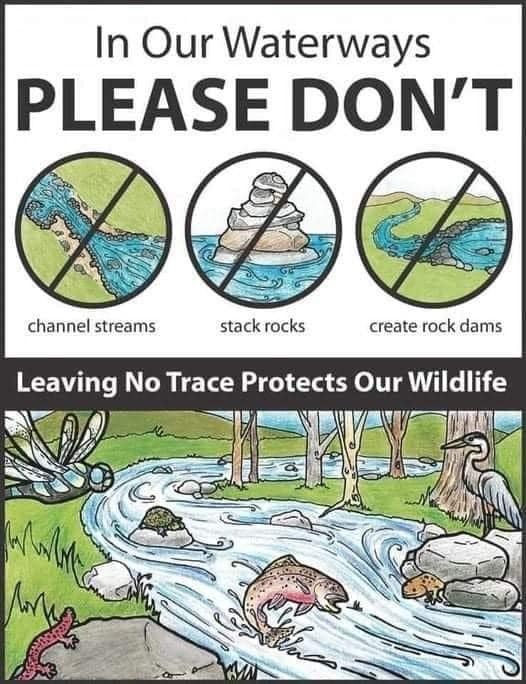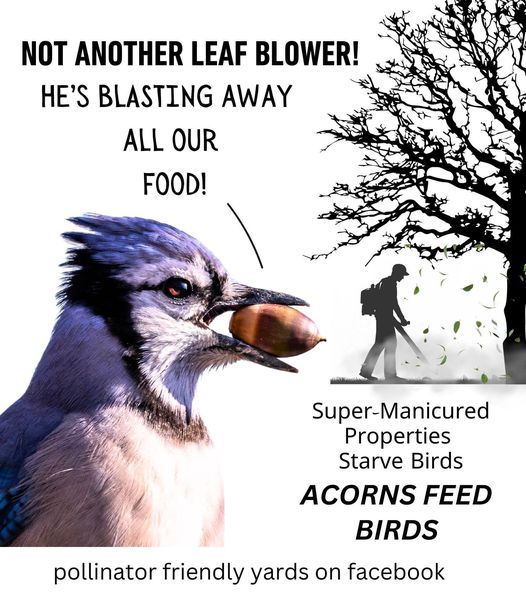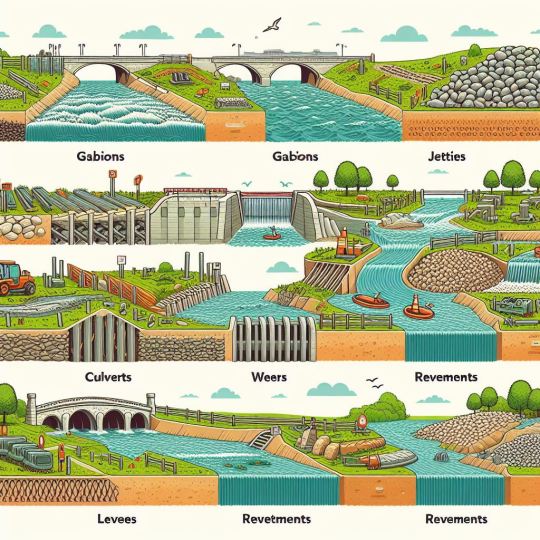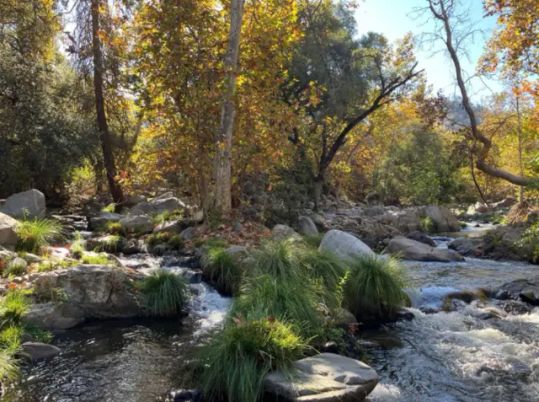#Ecological conservation
Explore tagged Tumblr posts
Note
Def a good idea to delete theculturedmarxist’s stuff, he’s also a big-time propagandist/genocide denier type. It sucks that some tankies have gotten bigger platforms recently by strike blogging.
But yeah the banana thing is insane, I *think* the original poster was using it as an example of the fact that a more just society in the US is necessarily going to be a less convenient one because convenience often comes at the expense of (domestic and international) labor exploitation, and “non-domestic crops being available year-round” is an example of a luxury that came out of said exploitation, which is A Point (though I might’ve picked something like Amazon same-day delivery to argue it…)
But then people ran with it and made it about either How Do We Stop Big Banana Through Socialism or Here’s How Bananas Can Still Win. Both at the dehumanizing expense of now-theoretical Latin American laborers of course 🙃
Oh shit that's what's happening? Tankies coasting in on strike blogging?? Gdi.
Yeah I think that was the original point too. The thing is, that US leftists keep centering US consumer demand in everything, like the entire system of global labour and resource exploitation by multinational conglomerates, aided and abetted by the IMF and World Bank and the entire colonial power matrix, can be solved by yelling at enough people about their consumption. For people who are so obsessed with class, it seems to consistently escape them that Global North consumers are also exploited and disempowered by the same oligopolies and monopolies that pay producers pennies on the dollar and sell for prices that smaller and entry-level companies can't compete with. Even as an example, bananas in the US are priced way lower than what's profitable, just to keep a monopoly of consumers. And because so many companies in the West don't pay working class people a fair wage, they have to consume the cheapest, most convenient food stuffs. So when you talk about people reducing consumption of bananas, you're asking people dependent on the cheapest nutrient sources to bear the biggest loss.
This is exactly what we mean by "no ethical consumption under capitalism". It doesn't mean we give up on the entire issue, it means that the systems of production cannot be manipulated by consumer boycotts and individual ethics. Even if one product was taken off the shelves, whatever supplanted it would be just as unethical for some group of people. It means that the solutions need to be implemented top-down, not bottom up. Global North governments need to better regulate corporate behaviour, prioritise the well-being of workers and ecological chains involving production and transport, prevent monopolies by regulating prices, and encourage and incentivize local food supply networks. And also, as some from Colombia said in a reblog about the cocaine industry, economic stress must be taken off developing nations by forgiving their IMF and World Bank loans so that they can invest the profits from their export industries in reforming agriculture and social welfare systems.
I literally do not understand why, when people directly impacted by these conditions have clear and cohesive demands and action plans, Western liberals and leftists need to come up with these completely abstract, impractical, ego-centric bullshit to create endless discourse over. They don't actually care about engaging with activists, grassroots organizations and unions in the Global South, because that involves interrogating their own paternalism, privilege and bias, and narrows the scope for the clout-chasing dunk economy.
#knee of huss#asks#anon#banana cocaine discourse#western leftists#white liberals#tankies#global south#capitalism#ethical consumption#food systems#paternalism#worker exploitation#ecological conservation#climate collapse
29 notes
·
View notes
Text
Towards Indigenous Sovereignty and Ecological Justice: Challenging the Unsustainability of Colonialism, Nationalism, Imperialism, and Capitalism
Glen Coulthard’s work, particularly in “Red Skin, White Masks,” offers a critical lens on the interconnectedness of colonialism, nationalism, imperialism, and capitalism, highlighting their unsustainable and exploitative nature. Colonialism is fundamentally about the domination and exploitation of indigenous lands, resources, and peoples by external powers. It disrupts indigenous ways of life,…
#anti-capitalism#Capitalism#Colonialism#Coulthard#Decolonization#ecological conservation#ecological justice#Glen Coulthard#global solidarity#Imperialism#Indigenous sovereignty#indigenous wisdom#Marxism#multiculturalism#Nationalism#Philosophy#Political Philosophy#Politics#Sustainability#Unsustainable
2 notes
·
View notes
Text

The world must see Wild Bart
4 notes
·
View notes
Text
When I was in vet school I went to this one lecture that I will never forget. Various clubs would have different guest lecturers come in to talk about relevant topics and since I was in the Wildlife Disease Association club I naturally attended all the wildlife and conservation discussions. Well on this particular occasion, the speakers started off telling us they had been working on a project involving the conservation of lemurs in Madagascar. Lemurs exist only in Madagascar, and they are in real trouble; they’re considered the most endangered group of mammals on Earth. This team of veterinarians was initially assembled to address threats to lemur health and work on conservation solutions to try and save as many lemur species from extinction as possible. As they explored the most present dangers to lemurs they found that although habitat loss was the primary problem for these vulnerable animals, predation by humans was a significant cause of losses as well. The vets realized it was crucial for the hunting of lemurs by native people to stop, but of course this is not so simple a problem.
The local Malagasy people are dealing with extreme poverty and food insecurity, with nearly half of children under five years old suffering from chronic malnutrition. The local people have always subsisted on hunting wildlife for food, and as Madagascar’s wildlife population declines, the people who rely on so-called bushmeat to survive are struggling more and more. People are literally starving.
Our conservation team thought about this a lot. They had initially intended to focus efforts on education but came to understand that this is not an issue arising from a lack of knowledge. For these people it is a question of survival. It doesn’t matter how many times a foreigner tells you not to eat an animal you’ve hunted your entire life, if your child is starving you are going to do everything in your power to keep your family alive.
So the vets changed course. Rather than focus efforts on simply teaching people about lemurs, they decided to try and use veterinary medicine to reduce the underlying issue of food insecurity. They supposed that if a reliable protein source could be introduced for the people who needed it, the dependence on meat from wildlife would greatly decrease. So they got to work establishing new flocks of chickens in the most at-risk communities, and also initiated an aggressive vaccination program for Newcastle disease (an infectious illness of poultry that is of particular concern in this area). They worked with over 600 households to ensure appropriate husbandry and vaccination for every flock, and soon found these communities were being transformed by the introduction of a steady protein source. Families with a healthy flock of chickens were far less likely to hunt wild animals like lemurs, and fewer kids went hungry. Thats what we call a win-win situation.
This chicken vaccine program became just one small part of an amazing conservation outreach initiative in Madagascar that puts local people at the center of everything they do. Helping these vulnerable communities of people helps similarly vulnerable wildlife, always. If we go into a country guns-blazing with that fire for conservation in our hearts and a plan to save native animals, we simply cannot ignore the humans who live around them. Doing so is counterintuitive to creating an effective plan because whether we recognize it or not, humans and animals are inextricably linked in many ways. A true conservation success story is one that doesn’t leave needy humans in its wake, and that is why I think this particular story has stuck with me for so long.
(Source 1)
(Source 2- cool video exploring this initiative from some folks involved)
(Source 3)
#we can save the world just maybe not in the way we’d planned#long post#scicomm#conservation#lemurs#wildlife#ecology#animals#vet med#veterinary medicine#One Health
34K notes
·
View notes
Text
youtube
Meet the Kakapo: Nature's Unique Parrot
Discover the incredible Kakapo, a flightless parrot with a remarkable story. Explore its unique adaptations and vital role in its ecosystem.
Check out my other videos here: Animal Kingdom Animal Facts Animal Education
#Helpful Tips#Wild Wow Facts#kakapo#nature documentary#unique parrot#endangered species#New Zealand wildlife#rare birds#flightless parrot#nocturnal animals#wildlife conservation#parrots of the world#biodiversity#animal facts#nature lovers#birdwatching#ecological conservation#wildlife photography#native species#endangered animals#bird conservation#zoology#wildlife education#nature enthusiasts#unusual animals#animal kingdom#natural habitat#youtube#animal behavior#animal education
1 note
·
View note
Text
Nurturing Nature
Together for Tomorrow: Environmental Progress Report YouTube Roots of Renewal 2030 Vision Annual Report 2023 Advocacy StatementConnecting People and Nature: The Cultural Value of Afforestation Areas: Advocacy Strategy Nurturing Nature: The Vision and Achievements of Friends of the Saskatoon Afforestation Areas As a dedicated non-profit Canadian registered charity, the Friends of the…

View On WordPress
#active lifestyles#advocacy#Arbor Week#awareness campaigns#beautification#biodiversity#Canadian charity#citizen engagement#City Nature Challenge#climate change#collaborative approach#community advocacy#Community Engagement#community gathering#Community Involvement#community partners#Community Pride#community responsibility#conservation#creating connections#CULTURAL HERITAGE#cultural value#diversity#Donations#Eco-friendly Practices#Ecological conservation#ecological health#ecological significance#ecosystem services#Educational Programs
0 notes
Text
Did You Know You Can Save $1000 a Month with These Sustainable Living Tips?
Introduction Sustainable living is all about making conscious choices that are kinder to our planet. By adopting sustainable living practices, you not only help the environment but also enjoy the added benefit of saving money. Why Adopt Sustainable Living? Environmental Impact: Reducing waste, conserving resources, and minimizing pollution have a direct positive impact on our planet. Personal…
#carbon footprint reduction#conscious living#eco-friendly lifestyle#ecological conservation#environmentally friendly living#ethical consumption#green living#low-impact living#minimalist lifestyle#organic farming practices#renewable energy usage#sustainability practices#sustainable community development#sustainable habits#zero waste living
0 notes
Text

These practices are very disruptive and destructive for a wide variety of aquatic creatures.
via: National Park Service
12K notes
·
View notes
Text
If you aren't following the news here in the Pacific Northwest, this is a very, very big deal. Our native salmon numbers have been plummeting over the past century and change. First it was due to overfishing by commercial canneries, then the dams went in and slowed the rivers down and blocked the salmons' migratory paths. More recently climate change is warming the water even more than the slower river flows have, and salmon can easily die of overheating in temperatures we would consider comfortable.
Removing the dams will allow the Klamath River and its tributaries to return to their natural states, making them more hospitable to salmon and other native wildlife (the reservoirs created by the dams were full of non-native fish stocked there over the years.) Not only will this help the salmon thrive, but it makes the entire ecosystem in the region more resilient. The nutrients that salmon bring back from their years in the ocean, stored within their flesh and bones, works its way through the surrounding forest and can be traced in plants several miles from the river.
This is also a victory for the Yurok, Karuk, and other indigenous people who have relied on the Klamath for many generations. The salmon aren't just a crucial source of food, but also deeply ingrained in indigenous cultures. It's a small step toward righting one of the many wrongs that indigenous people in the Americas have suffered for centuries.
#salmon#dam removal#fish#animals#wildlife#dams#Klamath River#Klamath dams#restoration ecology#indigenous rights#Yurok Tribe#Karuk Tribe#nature#ecology#environment#conservation#PNW#Pacific Northwest
19K notes
·
View notes
Text

5K notes
·
View notes
Text
Yo this rules and is genuinely uplifting
17K notes
·
View notes
Text
Exploring the Diverse Techniques of River Erosion Works
Introduction Rivers, with their ever-flowing currents, have the incredible power to shape the landscape over time. However, this natural force can sometimes pose a threat to human settlements, infrastructure, and agricultural lands. To mitigate the adverse effects of river erosion, various engineering techniques have been developed over the years. In this article, we will delve into the different…

View On WordPress
#bank protection#barrages#bioengineering#channelization#dams#ecological conservation#environmental sustainability#erosion control#groynes#realignment#revetments#riprap#River erosion#river training#sediment control#sediment control structures#spurs#sustainable engineering#vegetative bank protection#water resource management
0 notes
Text
Sustainable Futures: Unraveling the Interconnected Web of Colonialism, Nationalism, Imperialism, and Capitalism Through George Yancy's Philosophies
George Yancy, a contemporary philosopher known for his critical examination of race, identity, and power structures, provides a valuable framework for analyzing the interconnectivity and unsustainability of colonialism, nationalism, imperialism, and capitalism. By drawing on his philosophies, we can critically assess how these systems perpetuate inequality, exploitation, and unsustainable…
#Capitalism#Circular Economy#Colonialism#cooperative economics#critical race theory#Degrowth Movement#dialectic#ecological conservation#ethics#Existentialism#George Yancy#Human Rights#Imperialism#Indigenous governance#inequality#Nationalism#Parecon#Participatory Economics#phenomenology of spirit#race#racism#responsibility#social justice#socialism#The Commons#whiteness#Yancy
1 note
·
View note
Text
"England is celebrating the first pair of beaver kits born in the country since they were reintroduced back into the country’s north last year.
Landscape managers in England are beside themselves with surprise over the changes brought about by a single year of beaver residency at the Wallington Estate in Northumberland—with dams, mudflats, and ponds just appearing out of nowhere across the landscape.
Released into a 25-acre habitat on the estate last year, the four beavers at Wallington are part of a series of beaver returns that took place across the UK starting in 2021 in Dorset. Last year, GNN reported that Hasel and Chompy were released into the 925-acre Ewhurst Estate in Hampshire in January 2023, and the beavers that have now reproduced established their home in Wallington in July.
“Beavers are changing the landscape all the time, you don’t really know what is coming next and that probably freaks some people out,” said Paul Hewitt, the countryside manager for the trust at Wallington. “They are basically river anarchists.”
“This time last year I don’t think I fully knew what beavers did. Now I understand a lot more and it is a massive lightbulb moment. It is such a magical animal in terms of what it does.”
It’s believed that the only animal which alters the natural environment to the same extent as humans is the beaver. Their constant felling of trees to construct dams causes creeks to build up into pools that spill out during rainfall across the land, cutting numerous other small channels into the soil that distribute water in multiple directions.
Hewitt says that in Wallington this has translated to a frantic return of glorious wildlife like kingfishers, herons, and bats.
Recently the mature pair of beavers mated and produced a kit, though its sex is not yet known because beavers don’t have external genitalia.
These beaver reintroductions have led to a raft of beaver sightings around the country. Those at the National Trust working to rewild the beaver back into Great Britain hope the recovery of the landscape will convince authorities to permit further reintroductions to bigger areas."
-via Good News Network, July 16, 2024
#beaver#beavers#wild animals#rewilding#ecosystem#ecology#ecosystem restoration#conservation#climate action#biodiversity#good news#hope
4K notes
·
View notes
Text
Some good things happening at the local level: Land Back edition

The Confederated Tribes of Siletz Indians purchased back 2,000 acres of deeply historically significant land in Oregon, the site of both a massacre of Native people at the hands of the US army, and the site of a treaty signing that established a temporary truce and reservation. (Posted Jan 21, 2025)
The property was purchased directly from the previous landowner. The Nature Conservancy preserves a conservation easement on the land. The Siletz will continue to work closely with the Nature Conservancy and the BLM across the properties in the region to emphasize conservation and restoration. “To me, land back means, in its purest form, its return of lands to a tribe,” Kentta [citizen of the Confederated Tribes of Siletz Indians and the tribal council treasurer] said. “This is through purchase, and a significant amount paid out for the purchase. So for us, that is regaining of land back, but it's not a settlement or apology for things that happened in the past.”
The Tule River Tribe in California is moving forward with a plan to buy back 14,673 acres of rivers, forests, ranchland, and wetland in a conservation project partnering with The Conservation Fund, the Wildlife Conservation Board, and various California conservation organizations. It's set to move into Tule River control (or at least co-management? unclear to me) sometime this year. (Posted January 8, updated January 10, 2025)
Charmaine McDarment, chairwoman of the Tule River Tribal Council, said in a press release that the tribe appreciates help in restoring ancestral homelands. “As the climate crisis brings new pressures to address the effects of environmental mismanagement and resource degradation, the Tribe’s partnership with WCB is an important example of building relationships based in collaboration and trust. “The tribe remains committed to supporting co-stewardship efforts and fighting to ensure that disproportionate harms to Native American lands, culture, and resources are resolved in a manner that centers and honors Native American connections to ancestral lands.”
Illinois lawmakers voted to move Shabbona Lake State Park to the management of The Prairie Band Potawatomi Nation. The Illinois governor has a lot on his plate right now, but is expected to sign the bill into law. (Posted January 14, 2025)
The state House approved SB 867, which would transfer Shabbona Lake State Park to the Prairie Band Potawatomi. The bill now heads to Illinois Gov. JB Pritzker for his signature. The land transfer hinges on an agreement that the tribe continue to operate the property as a park, still open to the public. Final details will be established in a forthcoming land management agreement between the state and tribe. Prairie Band Potawatomi Chairman Joseph “Zeke” Rupnick said the bill’s passage was a “meaningful step” toward righting a historic old wrong. The land was originally part of the tribe's 1,280-acre reservation in northern Illinois. During Chief Shab-eh-nay's visit to family in Kansas, the land was unlawfully auctioned off, violating federal requirements for Congressional approval of tribal land sales. The tribe has sought to reclaim the land for nearly two centuries.
A Wabanaki food sovereignty group secured a no-strings-attached land deal to buy 245 acres of farm and forest in Maine, to focus on local, traditional, and sustainable foods. (Posted January 19, 2025)
What sets this purchase apart is that the land transfer comes without conservation easements. These easements, which frequently accompany land returns or transfers, are often well-meaning. However, they can inhibit Indigenous stewardship by preventing practices such as prescribed burning, subdivision, or particular kinds of zoning for buildings or infrastructure. A coalition of 12 organizations and several private donors helped secure the land for Niweskok [a nonprofit collective of Wabanaki farmers, health professionals, and educators] without easements, giving the Wabanaki nonprofit sovereignty over the property, according to Heather Rogers, Land Protection Program director for Coastal Mountain Land Trust. Her organization has helped finance the Goose River purchase through fundraising and advocacy efforts. “The land trusts had to approach it with humility - there are other ways to care for land that can end up with better outcomes, and I think we have all come to that realization,” Rogers said. “I think now that we've done it once, I think we would be open to doing it again that way.”
Conservation, food sovereignty, water management - a few hundred acres here, a thousand acres there, there is movement to put lands back in tribal control, which is a human rights win as well as an ecology/conservation one. This is mostly happening at state and even private levels, and is something to continue advocating for, pushing for, donating to, and finding out if you have any local movements advocating for this kind of thing near you and calling state-level lawmakers and representatives about.
1K notes
·
View notes
Text
From the article:
“The North Sea is one of the most pressured areas of ocean on planet Earth. There are relatively few other places that have a combination of industrialised countries around a largely enclosed sea, intensive agriculture, and pressures from fishing going back centuries. But the wonderful thing about nature is that it can recover pretty quickly if you give it the chance,” says Juniper. Bottlenose dolphins, along with humpback and minke whales, have been spotted in greater numbers in recent years along England’s North Sea coast, monitoring groups say. Their reasons for returning are not entirely clear. Grey seals – once in danger of disappearing around the UK – are flourishing. Visits to colonies on Norfolk beaches – where thousands of pups are born every year – have become a Christmas ritual for local people. Around the beach at Horsey, nearly 4,000 seal pups were born last year during a record-breaking season. “We know the grey seals are doing well, which is fantastic news, and we know that’s also true of other species in the North Sea,” says Bex Lynam, marine advocacy manager for North Sea Wildlife Trusts. “Bottlenose dolphins – which we weren’t seeing off the Yorkshire coast until the last five years – have been recorded in a huge number of sightings. It’s clear they have enough food. They are also calving down here, which is fantastic,” she says.
#whale conservation#ocean conservation#north sea conservation#marine conservation#hope#good news#hopepunk#environment#ecology#overfishing#dolphin conservation#biodiversity#endangered species#seal conservation#habitat#habitat conservation
1K notes
·
View notes